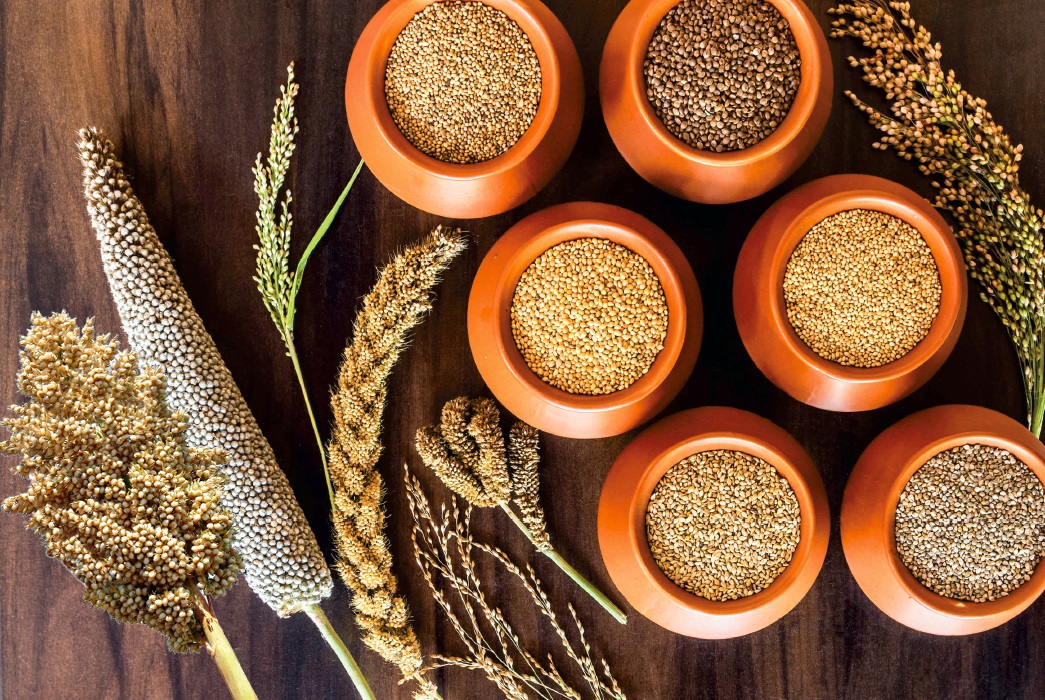Introduction: Millets are more than just a food staple; they are a powerhouse of nutrients and health benefits. This article will delve into the various ways incorporating millets into your daily diet can improve your overall health and well-being. From weight management to heart health, millets offer a range of advantages that make them an excellent addition to your meals.
1. Introduction to Millets
Millets are a group of small-seeded grasses that have been cultivated for thousands of years. They are particularly popular in Asia and Africa, where they have been a staple food for centuries. There are several types of millets, including pearl millet, finger millet, foxtail millet, and barnyard millet, each with its unique taste and nutritional profile.
2. Nutritional Profile of Millets
Millets are packed with essential nutrients, including:
- Proteins: Essential for muscle repair and growth.
- Dietary Fiber: Aids digestion and promotes satiety.
- B Vitamins: Crucial for energy production and brain function.
- Minerals: Rich in calcium, iron, magnesium, phosphorus, and zinc.
Compared to more popular grains like rice and wheat, millets have a higher nutritional value and offer a broader range of health benefits.
3. Health Benefit 1: Weight Management
Millets are low in calories and high in dietary fiber, making them an excellent choice for weight management. The fiber content helps you feel full longer, reducing the likelihood of overeating. Including millets in your diet can help you achieve and maintain a healthy weight without feeling deprived.
4. Health Benefit 2: Blood Sugar Control
Millets have a low glycemic index, meaning they release glucose slowly into the bloodstream. This helps maintain stable blood sugar levels and prevents spikes and crashes. For individuals with diabetes or those at risk of developing diabetes, millets are a smart dietary choice.
5. Health Benefit 3: Improved Digestion
The high fiber content in millets promotes healthy digestion by adding bulk to the stool and facilitating regular bowel movements. This can help prevent constipation and other digestive issues. Additionally, the prebiotic properties of millets support a healthy gut microbiome.
6. Health Benefit 4: Enhanced Immunity
Millets are rich in essential nutrients that support the immune system, including vitamins, minerals, and antioxidants. These nutrients help strengthen the body’s defenses against infections and illnesses, ensuring better overall health.
7. Health Benefit 5: Heart Health
Millets can help reduce cardiovascular risks by lowering bad cholesterol (LDL) levels and improving good cholesterol (HDL) levels. The magnesium content in millets also helps regulate blood pressure, further supporting heart health.
8. Health Benefit 6: Respiratory Health
Millets have anti-inflammatory properties that can help reduce the severity of asthma and other respiratory conditions. Their high magnesium content helps relax the muscles of the airways, making breathing easier.
9. Health Benefit 7: Antioxidant Properties
Millets are a rich source of antioxidants, which help combat oxidative stress and protect the body from chronic diseases such as cancer, heart disease, and neurodegenerative conditions. The antioxidants in millets neutralize harmful free radicals and promote cellular health.
Conclusion: Incorporating millets into your daily diet is a simple and effective way to improve your health. Discover the unique benefits of these ancient grains and make them a part of your healthy lifestyle. With their impressive nutrient profile and proven health benefits, millets are a valuable addition to any diet.














